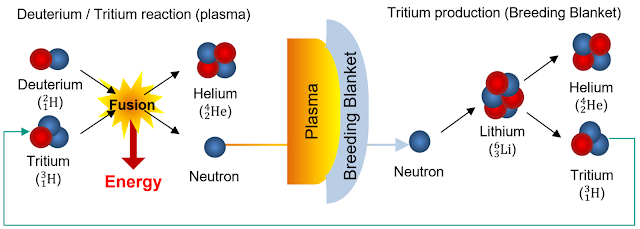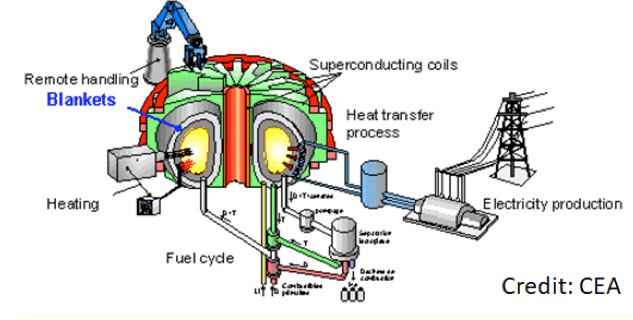Fields of specification
Key fusion technologies
The activities are divided in three projects
Project 1. Towards full fusion reactor integrated modelling
Plasma and fusion reactors are highly complex physical, numerical and computational systems. To model them, multiple physics as well as multiple temporal and spatial scales are required. Understanding the physics involved requires the integration of these multiple models to understand how each aspect of the reaction affects the others as well as their validation and subsequent integration into community tools. For this purpose, this project develops three tasks: the development of multi-physics codes to be able to model complex multi-physics systems with high computational requirements, the experimental validation of codes for fusion and the integration of codes in the production chains that will be used during ITER operation. This project is carried out by BSC, IQS and UPC.
Project 2. Neutronics, tritium breeding and operational fuel cycle

Source: Eurofusion
The energy production reactors of the future, such as DEMO, rely on a cycle based on a massive production of neutrons from the plasma and on breeding blankets that allow the produced neutrons to be multiplied even more and the combustion cycle to be maintained. But to achieve efficient energy production, the plant’s fuel cycle must be understood and optimized. This project focuses on the fusion fuel cycle and its impacts on the reactor and on the components related to neutrons, lithium and tritium. To this end, the project will focus on the analysis of the impact of the neutrons in the reactor, on the fuel feed cycle, especially on the tritium and lithium sensors, on the optimization of the connection of the breeding blanket with the tritium extraction system and on the recovery of hydrogen and cleaning of the fuel. This project is carried out by BSC, IQS and UPC.
Project 3. Fusion reactor studies

Source: CEA
The development of the DEMO project implies taking a step forward in a series of technologies necessary for its future construction. Specifically, this third project focuses on the highly specialized study of technologies for: the design of magnets based on High Temperature Superconducting (HTS) materials, the qualification of the resistance of the materials used in the construction of the reactor and the implementation of a supercritical CO2-based energy cycle. This project is carried out by BSC, EURECAT, ICMAB, IREC and UPC.

